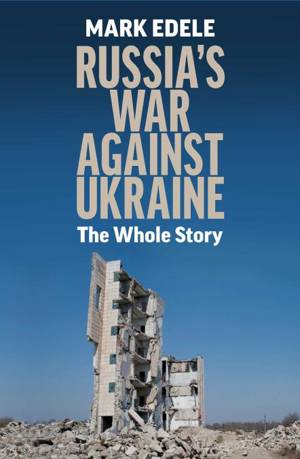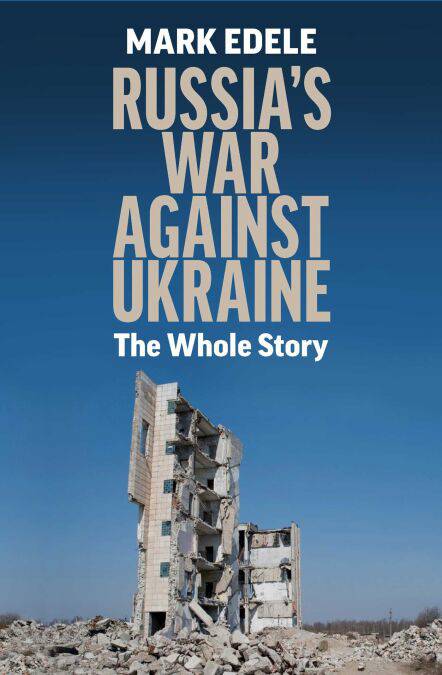
- Afhalen na 1 uur in een winkel met voorraad
- Gratis thuislevering in België vanaf € 30
- Ruim aanbod met 7 miljoen producten
- Afhalen na 1 uur in een winkel met voorraad
- Gratis thuislevering in België vanaf € 30
- Ruim aanbod met 7 miljoen producten
Zoeken
Omschrijving
In February 2022 Russia launched a full-scale invasion of Ukraine, a fellow East Slav state with much shared history. Mark Edele, a world authority on the history of the Soviet Union, explains why and how this conflict came about. He considers competing historical claims and arguments with authority and lucidity. His primary focus, however, is on the different paths taken by these two former members of the Soviet Union. Since the implosion of that state in 1991, Ukraine has developed a vibrant, if often troubled, democracy. For an increasingly dictatorial Russian political elite, including but not limited to Vladimir Putin, Ukraine has appeared more and more threatening. Humiliated by the degradation of Russia's international standing, feeling betrayed by an expanding NATO and anxious about democratic revolutions in the former Soviet space, Putin and his allies have increasingly retreated into a resentful ultra-nationalism. Dreams of past imperial glory stand in place of any attempt to solve the problems of the present.
Specificaties
Betrokkenen
- Auteur(s):
- Uitgeverij:
Inhoud
- Aantal bladzijden:
- 216
- Taal:
- Engels
Eigenschappen
- Productcode (EAN):
- 9780522879841
- Verschijningsdatum:
- 14/08/2023
- Uitvoering:
- E-book
- Beveiligd met:
- Adobe DRM
- Formaat:
- ePub

Alleen bij Standaard Boekhandel
+ 15 punten op je klantenkaart van Standaard Boekhandel
Beoordelingen
We publiceren alleen reviews die voldoen aan de voorwaarden voor reviews. Bekijk onze voorwaarden voor reviews.











